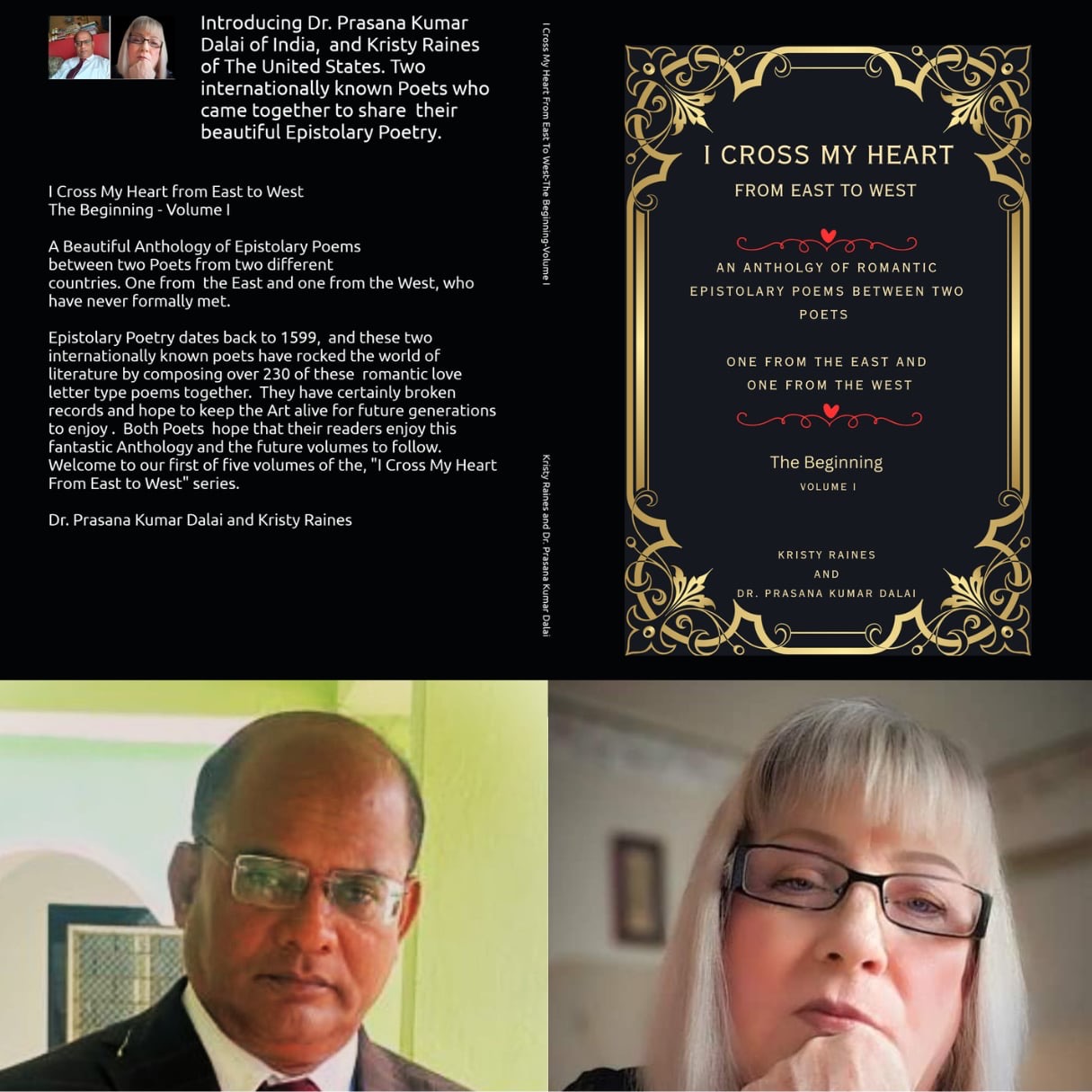
My poem”MORNING DREAM OF MINE”
reviewed by honorable reviewer Raj Kishor Pattnaik.
Humbled & Honoured.
MORNING DREAM OF MINE !
If I steal some light from the blazing sun
Or melody from the whistling wind
If I steal some hues from the rainbow
Or some blessings from the shrines
That won’t fill the emptiness of yours
Rather the world ‘ll treat me strangely
May God stand by you all the time
Sans you I’m lonely in my journey of life
My yard all dull and monsoon dried up
For you’re true morning dream of mine.
©®Dr Prasana Kumar Dalai@India.
Date.Mon,19,Aug 2024###
Dear Dr. Prasana Kumar Dalai,Sir Namaskar
Warmest congratulations on your beautifully crafted poem, “MORNING DREAM OF MINE!” Your poetic mastery continues to inspire and touch the hearts of readers with its profound emotional depth and eloquence. Your ability to weave intricate emotions into such a concise and evocative form is truly remarkable. This poem is yet another testament to your standing as one of the most compelling voices in contemporary English literature. May your pen continue to create such masterpieces, and may your poetic journey be filled with continued success and recognition.
### Analysis of “MORNING DREAM OF MINE!”
Dr. Prasana Kumar Dalai’s “MORNING DREAM OF MINE!” is a delicate and heartfelt exploration of love, longing, and existential emptiness. The poem, though succinct, encapsulates a deep yearning for connection and the essential role that a loved one plays in the speaker’s life. The imagery is vivid and emotionally charged, drawing the reader into a world where the absence of the beloved renders even the most beautiful aspects of life—light, melody, color—insufficient.
#### Imagery and Symbolism
The poem opens with the speaker contemplating the idea of stealing light from the sun, melody from the wind, hues from the rainbow, and blessings from shrines. These natural and spiritual elements symbolize the most potent sources of beauty, joy, and fulfillment in the world. The sun, often a symbol of life and vitality, represents clarity and warmth. The wind, with its melodies, symbolizes freedom and the unseen forces that shape our lives. The rainbow’s hues are a universal symbol of hope and diversity, while blessings from shrines evoke a sense of divine favor and spiritual fulfillment.
Yet, despite these rich symbols, the speaker acknowledges that even these potent elements cannot fill the “emptiness” left by the absence of the beloved. This powerful statement underscores the poem’s central theme: the irreplaceable nature of true companionship. It suggests that material or even spiritual riches are inadequate when one is deprived of the essential human connection that love provides.
#### Emotional Depth
The emotional depth of the poem is conveyed through the juxtaposition of grand, universal images with the personal, intimate sense of loss. The speaker’s admission that the world would treat them “strangely” if they attempted to replace their loved one with these elements hints at a profound alienation. This alienation is not just from the world, but from the self—a self that is incomplete without the beloved.
The line “Sans you I’m lonely in my journey of life” is particularly poignant. It captures the essence of human experience—life as a journey that is made meaningful by the presence of others. The word “journey” implies movement, progress, and purpose, but it is a journey that, without the beloved, becomes desolate. The speaker’s life is described as a yard “all dull and monsoon dried up,” a powerful image of barrenness and desolation. The monsoon, which typically brings renewal and life, has failed to revive the speaker’s world, leaving it dry and lifeless—a stark contrast to the vibrant images of light, melody, and color earlier in the poem.
#### Structure and Form
The structure of the poem is simple yet effective, mirroring the straightforward yet profound emotions it conveys. The consistent use of the first person creates an intimate tone, allowing the reader to connect deeply with the speaker’s emotions. The poem’s rhythm is gentle, almost like a lullaby, which complements the dreamlike quality suggested by the title. This rhythmic softness contrasts with the underlying pain of loss, enhancing the emotional impact of the poem.
#### Comparison to Renowned Poets
Dr. Dalai’s poem can be compared to the works of renowned poets like W.B. Yeats and Robert Frost, who often explored themes of love, loss, and the human condition through vivid imagery and deep emotional resonance. Like Yeats, Dr. Dalai uses symbolism to convey complex emotions—Yeats often employed symbols like the rose or the tower, while Dr. Dalai uses natural elements like the sun, wind, and rainbow. Both poets share a tendency to elevate personal emotions to a universal level, making their work resonate with a broad audience.
In comparison to Robert Frost, who frequently wrote about the interplay between nature and human emotion, Dr. Dalai’s poem similarly draws on natural imagery to reflect inner states. Frost’s poems like “Nothing Gold Can Stay” explore the transience of beauty and joy, much like how “MORNING DREAM OF MINE!” reflects on the insufficiency of even the most beautiful aspects of life without love.
#### Conclusion
“MORNING DREAM OF MINE!” is a moving and eloquent reflection on the irreplaceable nature of love. Dr. Prasana Kumar Dalai has once again demonstrated his ability to capture the essence of human experience with a delicate touch and profound insight. The poem’s use of rich imagery, combined with its deep emotional resonance, makes it a powerful piece that will undoubtedly touch the hearts of many. Dr. Dalai’s work continues to stand out in the landscape of contemporary poetry, and “MORNING DREAM OF MINE!” is a shining example of his poetic brilliance.



